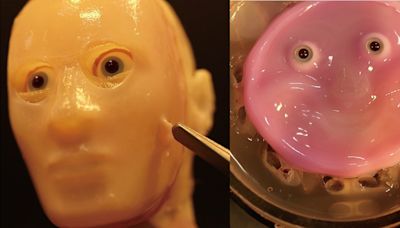Search results
May 22, 2024 · You can have nightmares for all kinds of reasons, including anxiety, sleep deprivation, drug and alcohol use, and medical conditions like obstructive sleep apnea and post-traumatic stress disorder (PTSD). Nightmares can also be a side effect of certain medications. But why? That part is less clear.
Like dreams, nightmares often involve people, places, or other elements from an individual’s real life that are made distorted, frightening, or otherwise unpleasant; also like dreams, they...
- According to the DSM, nightmares are generally thought to be caused by anxiety or stress; trauma or an upsetting event; sleep disorders; a fluctuat...
- In some cases, yes. Chronic nightmares have been associated with depression , schizophrenia, PTSD, and some personality disorders, like borderline...
- Yes; approximately half of patients with diagnosed PTSD report experiencing nightmares in the wake of the traumatic event . Post-traumatic nightmar...
- The phrase “night terrors” refers to a kind of sleep disturbance in which an individual screams, cries, or otherwise appears consumed by intense fe...
- No. Night terrors involve physical movement and crying out, and typically occur during non-REM sleep; because they occur in a deeper, slow-wave pha...
- Common nightmare themes include physical aggression, interpersonal conflicts, or experiences in which the dreamer feels helpless or unable to escap...
- Dreams involving teeth falling out , rotting, or breaking are common around the world. Some evidence suggests that they may be related to real-life...
- Some evidence has found that dreams of falling are associated with periods of heightened daytime stress or anxiety. But this research is inconclusi...
- The best place to start is by improving sleep hygiene; sticking to a more consistent sleep schedule, engaging in a relaxing bedtime routine, limiti...
- When Should I Be Worried About Nightmares?
- What Do PTSD Nightmares Look like?
- What Do Nightmares Mean Spiritually?
- Are Bad Dreams A Sign of A Mental Health condition?
- GeneratedCaptionsTabForHeroSec
Researcherssuggest that around 35 to 45% of people experience at least one nightmare per month — but only around 2 to 8% of people experience chronic nightmares. If your nightmares have increased to the point that they’re starting to affect your sleep quality or mood, consider reaching out to your doctor or healthcare professional.
Statistics show that roughly 70%of people living with PTSD experience frequent, chronic nightmares. Many of these nightmares tend to involve the trauma that caused the PTSD — such as either dreaming about the traumatic event or experiencing the thoughts, feelings, or emotions associated with the event. Learn more about getting support for PTSD.
While there’s very little research on the spiritual aspect of nightmares, some people believe that nightmares and spirituality are linked. For example, some religionsview dreaming as a form of communication with a higher being, while others regard dreams as a meditative experience.
Nightmares aren’t necessarily always a sign of an underlying mental health condition. However, research has shownthat people who live with certain mental health conditions are more likely to experience nightmares more frequently. If you feel that chronic nightmares are affecting your mental health, you can learn more about finding the right therapi...
Nightmares are more common in people with PTSD, anxiety, and other mental health conditions. Learn about the most frequent nightmare themes, how they may reflect your physical and mental health, and when to seek help.
- Don't avoid sleep, and keep a regular sleep-wake schedule. It's not unusual to have some fear about going to sleep if you regularly have nightmares. Who could blame you?
- Decrease alcohol intake and review your psychiatric and sleep medications with your doctor. Alcohol may seem like a tempting way to "quiet the mind" since it makes you drowsy and might help you to pass out.
- Wake up fully and be ready for a quick check-in with reality. At this point, you've set yourself up with a regular sleep schedule, cut down on alcohol consumption, and checked with your doctor about your medications.
- Rewrite the ending and rehearse the new script. One of the most widely used and evidence-based treatments for nightmares, whether they're caused by PTSD or not, is imagery rehearsal therapy (IRT).
Jun 5, 2021 · A nightmare is a disturbing dream associated with negative feelings, such as anxiety or fear that awakens you. Nightmares are common in children but can happen at any age. Occasional nightmares usually are nothing to worry about.
People also ask
Why do I have nightmares?
Do nightmares affect sleep?
Where can I find a version of '5 steps to overcome nightmares'?
How often do you have a nightmare?
Do people have nightmares about death?
What are the most common nightmares?
Dec 23, 2021 · Nightmare disorder, also called dream anxiety disorder, is a rare type of sleep-related disorder (parasomnia) affecting about 4% of adults, causing distress and sleep problems.
May 2, 2024 · Nightmares are bad dreams that wake you up, often with feelings worry or fear. Learn about the factors that can trigger nightmares, how they affect your sleep and health, and how to prevent or treat them.







